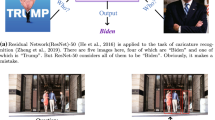Abstract
Concept algebra is an abstract mathematical structure for the formal treatment of concepts and their algebraic relations, operations, and associative rules for composing complex concepts, which provides a denotational mathematic means for knowledge system representation and manipulation. This paper presents an implementation of concept algebra by a set of simulations in Java. A visualized knowledge representation tool for concept algebra is developed, which enables machines learn concepts and knowledge autonomously. A set of eight relational operations and nine compositional operations of concept algebra are implemented in the tool to rigorously manipulate knowledge by concept networks. The knowledge representation tool is capable of presenting concepts and knowledge systems in multiple ways in order to simulate and visualize the dynamic concept networks during machine learning based on concept algebra.
Preview
Unable to display preview. Download preview PDF.
Similar content being viewed by others
References
Anderson, J.R.: The Architecture of Cognition. Harvard Univ. Press, Cambridge (1983)
Davis, R., Shrobe, H., Szolovits, P.: What is a Knowledge Representation. AI Magazine 14(1), 17–33 (1993)
Ganter, B., Wille, R.: Formal Concept Analysis. Springer, Berlin (1999)
Glasgow, J., Narayanan, N.H., Chandrasekaran, B.: Diagrammatic Reasoning: Cognitive and Computational Perspectives. AAAI Press, Menlo Park (1995)
Hampton, J.A.: Psychological Representation of Concepts of Memory, pp. 81–110. Psychology Press, Hove (1997)
Hurley, P.J.: A Concise Introduction to Logic, 6th edn. Wadsworth Pub. Co., ITP (1997)
Matlin, M.W.: Cognition, 4th edn. Harcourt Brace College Pub., NY (1998)
Medin, D.L., Shoben, E.J.: Context and Structure in Conceptual Combination. Cognitive Psychology 20, 158–190 (1988)
Minsky, M.: A Framework for Representing Knowledge, MIT-AI Laboratory Memo 306 (1974)
Sowa, J.F.: Knowledge Representation: Logical, Philosophical, and Computational Foundations. Brooks/Cole, Pacific Grove (2000)
Thomason, R.: Logic and artificial intelligence. The Stanford Encyclopaedia of Philosophy (2003)
Wang, Y.: Keynote: On Cognitive Informatics. In: Proc. 1st IEEE International Conference on Cognitive Informatics (ICCI 2002), Calgary, Canada, pp. 34–42. IEEE CS Press, Los Alamitos (2002)
Wang, Y.: On Cognitive Informatics. Brain and Mind: A Transdisciplinary Journal of Neuroscience and Neorophilosophy 4(3), 151–167 (2003)
Wang, Y.: Keynote: Cognitive Informatics - Towards the Future Generation Computers that Think and Feel. In: Proc. 5th IEEE International Conference on Cognitive Informatics (ICCI 2006), Beijing, China, pp. 3–7. IEEE CS Press, Los Alamitos (2006)
Wang, Y.: Software Engineering Foundations: A Software Science Perspective. CRC Book Series in Software Engineering, vol. II. Aurebach Publications, NY (2007a)
Wang, Y.: The Theoretical Framework of Cognitive Informatics. International Journal of Cognitive Informatics and Natural Intelligence 1(1), 1–27 (2007b)
Wang, Y.: The OAR Model of Neural Informatics for Internal Knowledge Representation in the Brain. International Journal of Cognitive Informatics and Natural Intelligence 1(3), 64–75 (2007c)
Wang, Y.: On Contemporary Denotational Mathematics for Computational Intelligence. Transactions on Computational Science 2, 6–29 (2008a)
Wang, Y.: On Concept Algebra: A Denotational Mathematical Structure for Knowledge and Software Modeling. International Journal of Cognitive Informatics and Natural Intelligence 2(2), 1–19 (2008b)
Wang, Y.: Mathematical Laws of Software. Transactions of Computational Science 2, 46–83 (2008c)
Wang, Y.: On Abstract Intelligence: Toward a Unified Theory of Natural, Artificial, Machinable, and Computational Intelligence. International Journal of Software Science and Computational Intelligence 1(1), 1–17 (2009a)
Wang, Y.: Towards a Formal Knowledge System Theory and Its Cognitive Informatics Foundations. Transactions of Computational Science 5 (2009b) (to appear)
Westen, D.: Psychology: Mind, Brain, and Culture, 2nd edn. John Wiley & Sons, Inc., NY (1999)
Wilson, R.A., Keil, F.C.: The MIT Encyclopedia of the Cognitive Sciences. MIT Press, Cambridge (2001)
Author information
Authors and Affiliations
Editor information
Editors and Affiliations
Rights and permissions
Copyright information
© 2009 Springer-Verlag Berlin Heidelberg
About this chapter
Cite this chapter
Tian, Y., Wang, Y., Hu, K. (2009). A Knowledge Representation Tool for Autonomous Machine Learning Based on Concept Algebra. In: Gavrilova, M.L., Tan, C.J.K., Wang, Y., Chan, K.C.C. (eds) Transactions on Computational Science V. Lecture Notes in Computer Science, vol 5540. Springer, Berlin, Heidelberg. https://doi.org/10.1007/978-3-642-02097-1_8
Download citation
DOI: https://doi.org/10.1007/978-3-642-02097-1_8
Publisher Name: Springer, Berlin, Heidelberg
Print ISBN: 978-3-642-02096-4
Online ISBN: 978-3-642-02097-1
eBook Packages: Computer ScienceComputer Science (R0)




